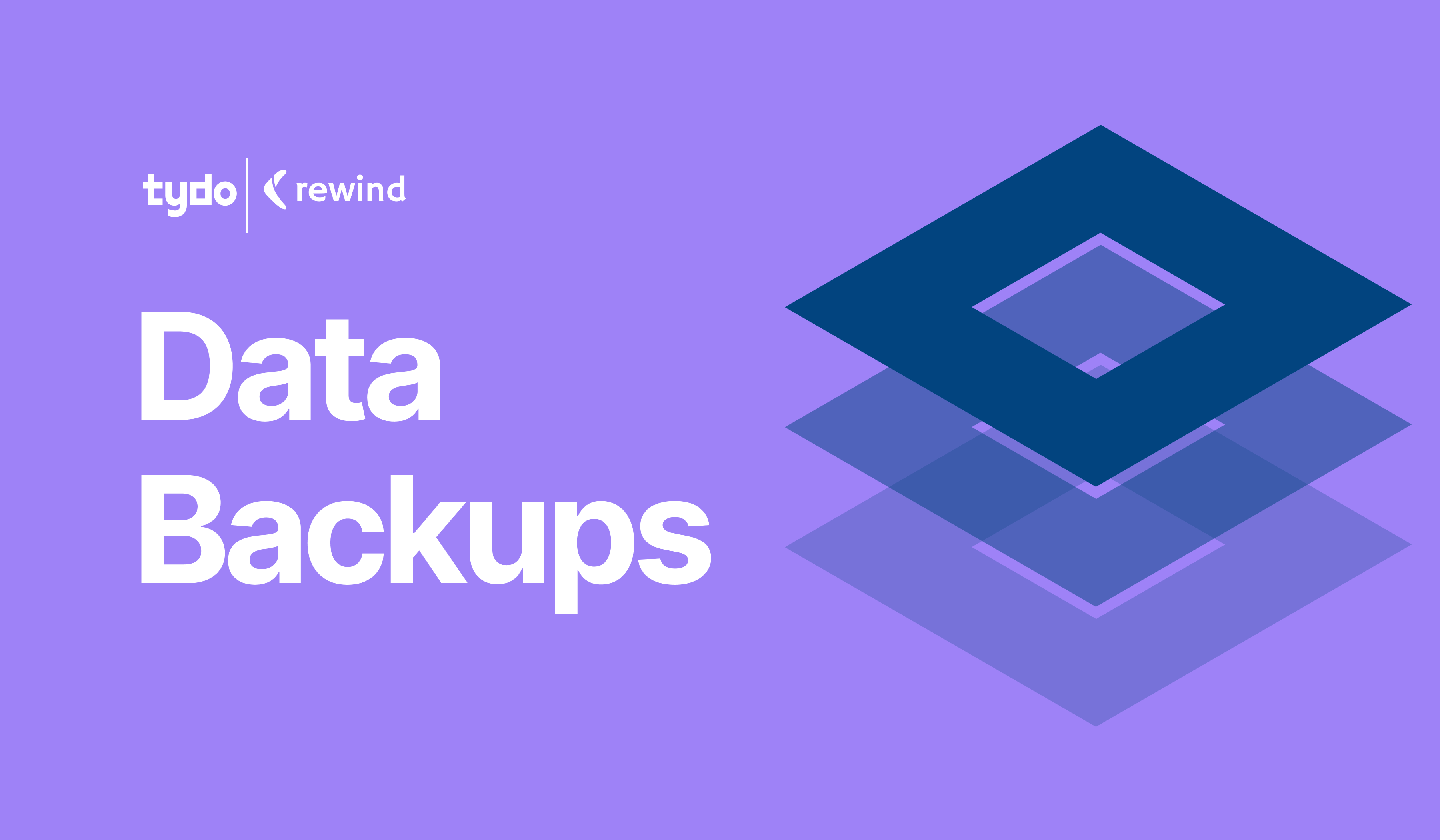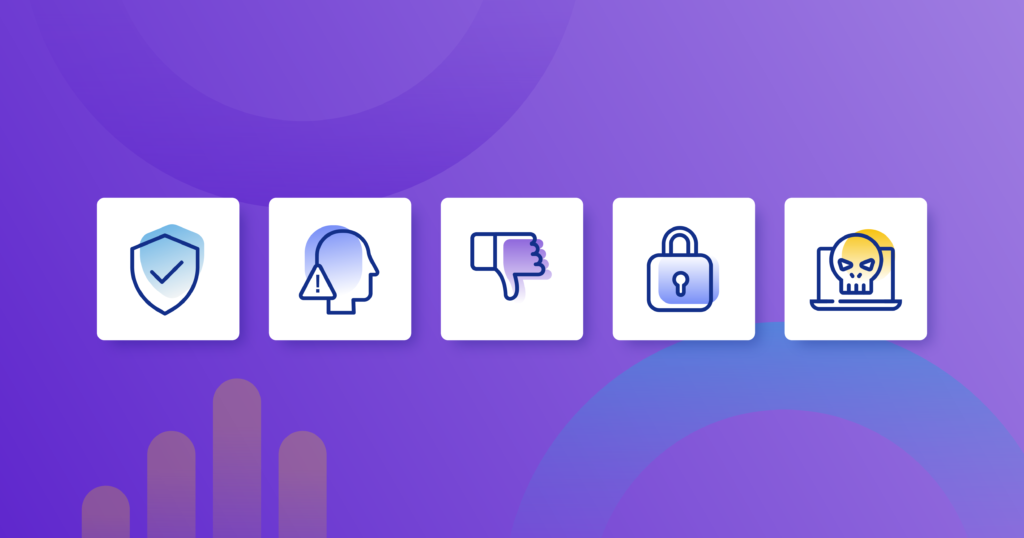Summarized by Rewind. Original writing by the team at Tydo.
One second your data is there. The next second it’s all gone. You blink, and you lose everything in a matter of seconds. We’ve all been there—at least on a personal level—but it’s a whole other story when a business is on the line.
SaaS platforms don’t back up mission-critical cloud data. Most brands don’t know that. And unfortunately, they only understand that truth once they’ve experienced a major data loss event and its impacts.
Founded in 2015, Rewind backs up, restores, and copies all the information stored in SaaS applications, preventing data catastrophes. Security is at the core of what they do. From Paul Mitchell to Gymshark, brands turn to Rewind to protect the high-priority data that powers their business.
We chatted with Daniel Sim, General Manager of Ecommerce at Rewind, about why every brand needs a backup solution and data security best practices.
Building a safety net
Most brands assume their SaaS data is protected, stored, and easily accessible at any time. But, unfortunately, that’s not the case.
Data catastrophes can happen to any brand at any time. Sometimes it’s late on a Friday night and an employee pushes the wrong button. Sometimes a growth marketer installs a new app that needs data access, and there’s a bug in the app that corrupts data.
Most SaaS platforms live by the Shared Responsibility Model. If data loss occurs for all paying customers, the SaaS company restores the data. But, if it’s an issue impacting only one brand, they won’t do it. Put simply, software customers are always responsible for ensuring data is protected.
That’s why DTC brands need backup solutions like Rewind. But, at the end of the day, everyone needs a backup solution. It’s not exciting. It’s not sexy. But, it’s important.
“These data disasters can happen to anyone. We help you recover from very specific errors related to your data.”
SaaS backups for every brand
For most brands, backups aren’t top of mind. Unfortunately, most brands come to Rewind after they’ve experienced a data loss event and the mass impact of that.
Rewind partners with brands of all sizes. Data loss events can wipe out anyone—from new DTC brands to legacy retailers.
When onboarding brands, Rewind first tries to understand the data security practices already in place, asking:
- Who has access to your systems?
- Does every person need that level of access?
Then, they run through password policies and general data practices, helping brands understand the whole picture.
Installing Rewind is simple. It’s an easy installation. And then, brands connect it to Shopify or BigCommerce. Rewind also offers backup protection for Quickbooks Online, Trello, Github, and Jira users.
The software acts as a time machine. Brands can go back to any day or time and recover deleted products, individual blog posts, or other data. In an ideal world, after setting up Rewind, brands won’t use it again.
Beyond the backups product, Rewind also has a product called Rewind Staging for brands to replicate single items or all their cloud data.
Regardless of the industry, lost data can result in costly downtime. It can hurt business reputation, client perception, and loyalty.
“The average business has tons of SaaS products in their organization. We want to be the backup provider for all your SaaS stack.”
Why backups matter
With the rise in cyber attacks, all businesses should review the policies, procedures, and programs they have in place to ensure they’re protected against cybercrime.
Ecommerce is growing. And, brands shouldn’t be scared to make updates to their site or change designers or agencies because it could result in data loss. They shouldn’t be afraid to install a new app when it could boost sales.
Backups help brands act boldly in situations like that. With tools like Rewind, no longer do brands have to worry about an app or site damaging their store.
Some best data practices from the Rewind team include:
- Installing a password management solution.
- Embracing multi-factor authentication (MFA).
- Adopting the principles of least privilege.
- Properly vetting apps.
- Watching for cybercrime.
- Backing up data.
“The need for backups is increasing. These issues aren’t going away, and you need a solution that prevents data loss events from happening or at least helps you recover.”
The future of data protection
Daniel says, “We’ll see more regulations coming from the government. It’s already a trend.”
He just hopes it’s not a burden on small businesses.
The other trend he’s seeing is that there are more and more sophisticated ways to secure accounts and data aka multi-factor authentication.
Rewind is maturing in terms of how they’re approaching data loss events and preventing them from happening. For example, in the future, they’ll be able to quickly detect data anomalies and proactively protect brands from data loss events.
At the end of the day, Rewind believes, “your data is your data.” So, they’ll never sell a brand’s data or use it to their advantage. They protect it in every way possible.
“Down the line, we expect to see even more secure authentication methods for data access.”




